|
|
Originally posted July 22, 2022. In honor of the 10th anniversary of the DMDB blog on January 22, 2019, Dave’s Music Database launched its own Hall of Fame. This is the 15th set of song inductees. These songs all appear in the Dave’s Music Database list of the Top 100 Blues Songs and have been inducted into the Blues Hall of Fame. |
John Lee Hooker “Boogie Chillen’” (1949)Inducted July 2022 as “Blues Songs” |
| John Lee Hooker “was born in 1917 at ground zero of the blues, Clarksdale, Mississippi.” TC He learned his playing style from his stepfather, Will Moore. He said of his first release, “Boogie Chillen,” that it was a guitar boogie like what his father played down south. BH It was the first “down-home electric blues record” to top the R&B charts. BH Read more. |  |
John Lee Hooker “Boom Boom” (1962)Inducted July 2022 as “Blues Songs” |
| Blues great John Lee Hooker first found success with 1949’s “Boogie Chillen,” a #1 R&B hit recorded at his first recording session. However, it wasn’t until 1962’s “Boom Boom” – a song on which he was accompanied by the famed Motown session men known as the Funk Brothers – that Hooker had his sole entry on the pop charts. It would also be his final appearance on the R&B charts. It was inspired by Luilla, a bartender at the Apex Bar in Detroit where Hooker used to play. She’d say, “Boom Boom, you’re late again” when he arrived. As he said, “She gave me a song but she didn’t know it.” SF Read more. |
Howlin Wolf “Smokestack Lightnin’” (1956)Inducted July 2022 as “Blues Songs” |
| Chester Arthur Burnett was nicknamed “Wolf” by his maternal grandmother; a title he would more than grow into with his menacing adult frame of 6’ 3” and 300 pounds and a voice which made it sound “like he subsisted on a diet of broken glass…washed down…with kerosene.” SS He first recorded “Smokestack Lightning” as “Crying at Daybreak” in 1951, but it was a song he’d performed since the early 1930s. Lightning finally struck for him when the re-recorded version hit the top 10 on the R&B charts in 1956. Read more. | 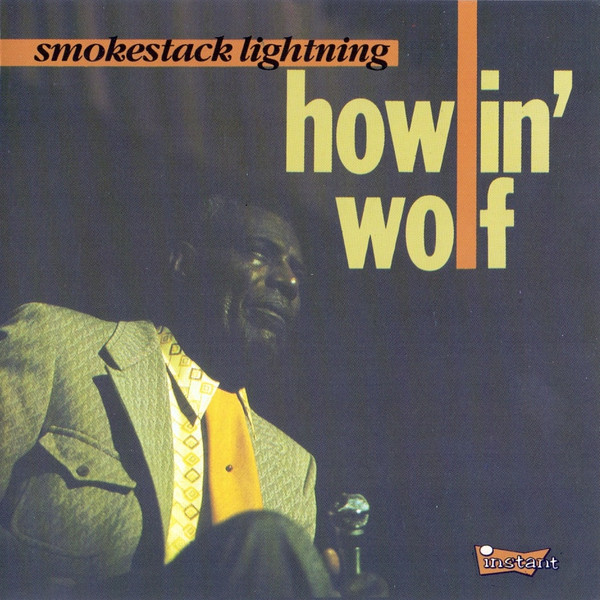 |
Robert Johnson “Cross Road Blues” (1936)Inducted July 2022 as “Blues Songs” |
| Robert Johnson has often been called “The Father of the Blues.” His most important song may well be “Cross Road Blues,” not just because it became a staple for Eric Clapton but it promotes one of the greatest legends in rock and roll. According to the legend, Johnson acquired masterful guitar playing skills overnight, supposedly because he went to the crossroads (an intersection of rural roads) and sold his soul to the Devil. However, Johnson “sings nary a word about devil-dealing” BH in “Cross Road Blues;” rather he is trying unsuccessfully to hitch a ride at the crossroads. Read more. | 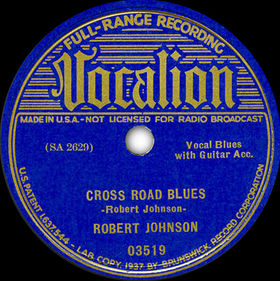 |
Robert Johnson “Hell Hound on My Trail” (1937)Inducted July 2022 as “Blues Songs” |
| Blues historian Ted Gioia said “Hell Hound on My Trail” might be Johnson’s greatest work. WK This is a showcase for “a disturbing vision of a blues poet haunted by spirits, doomed to die before he would ever see the fruits of an alleged deal with the devil.” BH Johnson proved to be “a master synthesizer, pulling together bits and pieces of existing material and infusing them with something entirely his own.” SS Read more. | 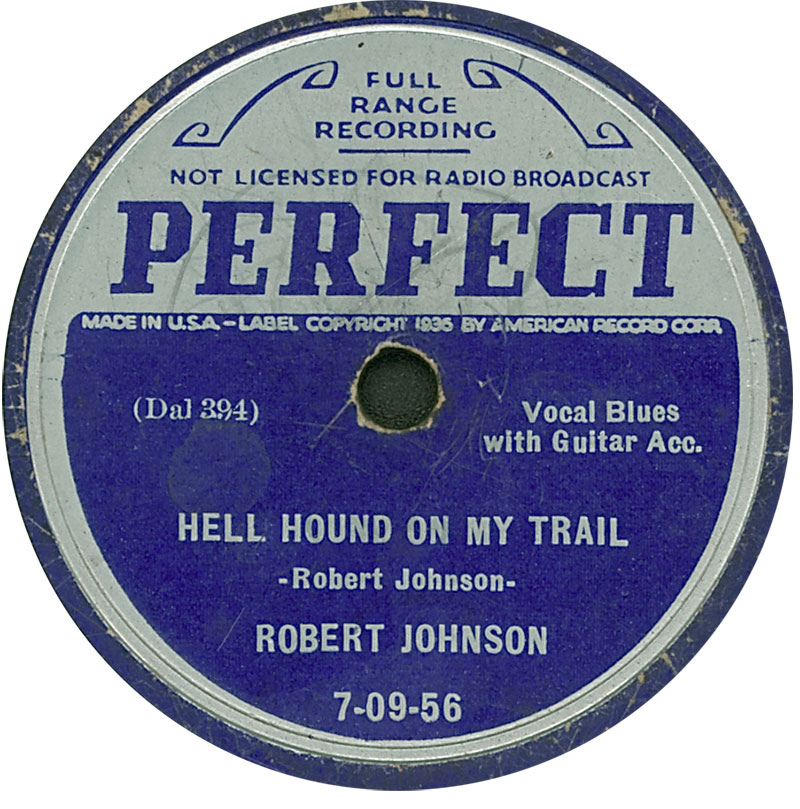 |
B.B. King “The Thrill Is Gone” (1969)Inducted July 2022 as “Blues Songs” |
| Legendary blues singer and guitarist B.B. King reached the R&B charts 76 times from 1951 to 1992, including four chart-toppers early in his career. While he had a half dozen more successful R&B chart entries than “The Thrill Is Gone” it was his biggest hit on the Billboard Hot 10. The song is a cover of a 1951 slow, blues ballad by Roy Hawkins but in King’s hands it became “a modern blues epic.” SS Rock critic Dave Marsh speculated that it might be “the last great blues record.” DM Read more. |  |
Clarence “Pine Top” Smith “Pine Top’s Boogie Woogie” (1929)Inducted July 2022 as “Blues Songs” |
| This “rhythmical, driving piano tune” SS is credited “with laying the foundation for the boogie woogie craze.” BH The form is marked by “a bass melody…repeated over and over while the upper voice melody and chord structure change above it.” TY2 Clarence “Pine Top” Smith started playing “Pine Top’s Boogie Woogie” at rent-parties in the black ghettos of Chicago. TY2 He took the term “boogie woogie” from his background in dance. SS Read more. |  |
T-Bone Walker “Call It Stormy Monday” (1947)Inducted July 2022 as “Blues Songs” |
| Aaron Thibeaux “T-Bone” Walker is often called “the father of electric blues.” SS He “deeply influenced virtually every guitarist during the decade following World War II” SS with his blend of blues and jazz guitar. UP It was “Call It Stormy Monday” “that made him a legend.” SS It is “one of the most influential records not only in blues history, but in guitar history.” BH “It became a song that virtually every blues band had to know; in fact, it was also required learning for countless jazz, soul, pop, and rock performers who may have had no other blues songs in their entire repertoires.” BH Read more. | 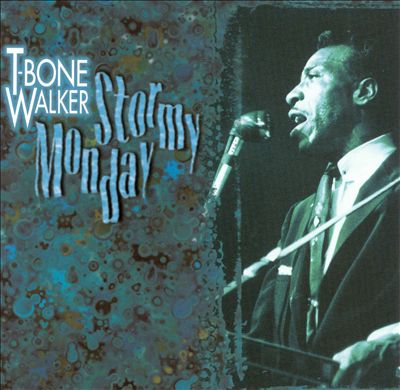 |
Muddy Waters “Hoochie Coochie Man” (1954)Inducted July 2022 as “Blues Songs” |
| Music historian Steve Sullivan called Muddy Waters “the mighty rock upon which the foundation of postwar Chicago blues was constructed” SS and “Hoochie Coochie Man” was his “defining song.” SS It was the first of many Willie Dixon songs recorded by Waters. It was the biggest hit of Waters’ career, reaching #3 on the R&B chart, but “its influence on rock music in general is incalculable.” LW Read more. | 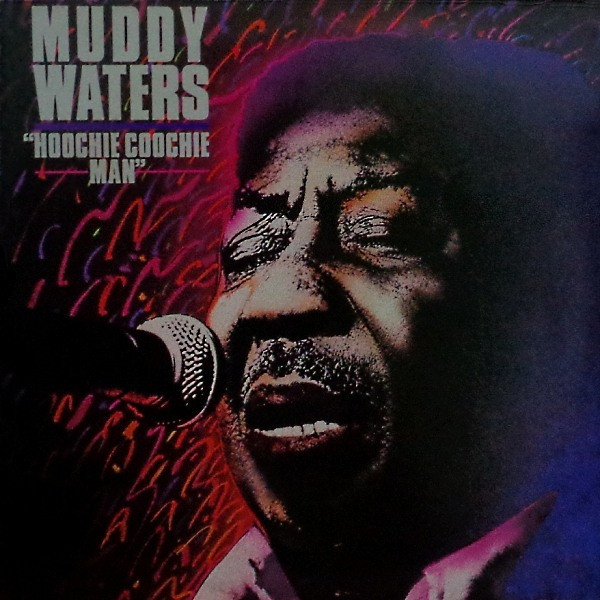 |
Bo Diddley “I’m a Man” / Muddy Waters “Mannish Boy” (1955)Inducted July 2022 as “Blues Songs” |
| “I’m a Man” was the first song recorded by Bo Diddley and it became the B-side of his debut single, the eponymous “Bo Diddley” which topped the R&B chart. The song was inspired by “Hoochie Coochie Man” by Muddy Waters, who then recorded “Mannish Boy” as a remake/answer song, mocking Diddley’s younger age. “Coming from Waters, a mature adult figure with a voice that booms like God’s, virtually the same words are far more leering and imposing. Waters isn’t kidding around; he is a man and his sexual boasts and demands aren’t fantasies, they’re real.” DM Read more. |  |








No comments:
Post a Comment